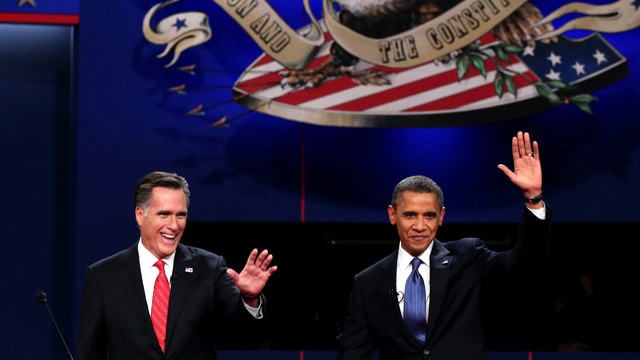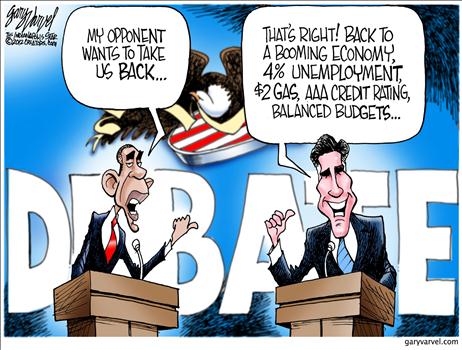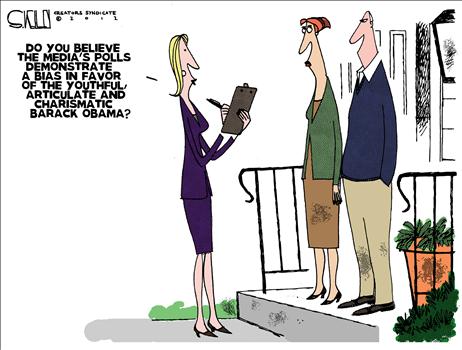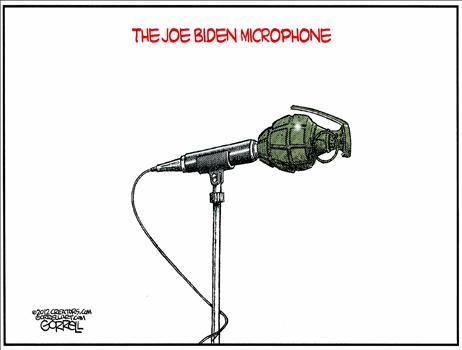Last night’s presidential debate wasn’t even close. It turned into a Romney rout. That’s not merely my judgment nor the judgment of Republican backers of the candidate, but of practically the entire political world, Right and Left, and everyone in between.
When even Bill Maher—the million-dollar-Obama donor—tweets that the president needed his teleprompter, and radical celebrity filmmaker Michael Moore moans, “This is what happens when you pick John Kerry as your debate coach,” you know Obama had an awful night. It was so bad I almost questioned whether my personal beliefs were getting in the way of evaluating the debate without an undue bias. Obama just kept endlessly repeating the same tired talking points. He was uninspiring and flat. As many commentators noted afterwards, he acted like he didn’t really want to be there.
Romney was the polar opposite. He was eager to jump in and give his perspective on taxes, the deficit, Obamacare, and how to get the economy running again. He had reason to be eager; his command of the facts was superb and his delivery was forceful without being arrogant or overbearing. Further, he, at times, channeled a bit of Ronald Reagan when he lifted the debate above the mundane economic facts and spoke of his vision for the country. Particularly satisfying to me was his reference to the founding documents—the Declaration of Independence and the Constitution—and his pointed reminder that there is a Tenth Amendment in that Constitution that says the federal government doesn’t run our lives, that the states and the people, respectively, are to have most of the governmental authority. One cartoonist, before the debate, predicted the essence of what took place on that stage:
Insta-Polls taken by CBS and CNN immediately following the debate showed an overwhelming victory for Romney. CBS gave him a 46-22 edge; CNN’s poll was even more amazing: a 67-25 Romney advantage. A focus group moderated by Frank Luntz on Fox News stunned Luntz. The majority of the 20-odd people in his group said the debate changed their minds, and they were now planning to vote for the Republican challenger. He said he’d never, in all his previous experience, witnessed such a turnaround.
How is this going to affect the polling going forward? Will this debate prove to be the watershed event of the campaign season? Will public opinion begin to trend toward Romney? That all depends. There are two more presidential debates; Romney has to continue what he started last night if he’s going to seal the deal. He will still have to battle a media that desperately wants Obama to be reelected. Pollsters are going to have to be more honest in their samplings and realize this is not a 2008 electorate. A lot depends on how many of each category—Democrat, Republican, independents—they include in their polling. There’s also the character and leanings of the pollsters themselves to consider; questions can be framed in such a way as to lead the electorate to the “proper” answer:
Next on the docket is the lone vice-presidential debate on Thursday, October 11. Paul Ryan has to make sure he is as well prepared as Romney was for last night’s debate. Frankly, I would be shocked if he didn’t deliver as strong a performance as Romney’s; Ryan is well prepared all the time, since he practically lives and breathes policy. He has another factor working in his favor—he gets to debate Joe Biden.
Biden rather infamously, in a speech earlier this week, decried how the middle class has been buried the last four years, apparently forgetting who has been in charge all that time. Even some Democrats refer to him as a human gaffe machine. May he live up to his reputation.
Last night proves there is still hope for a genuine change. It’s now more than a four-year-old empty slogan.




